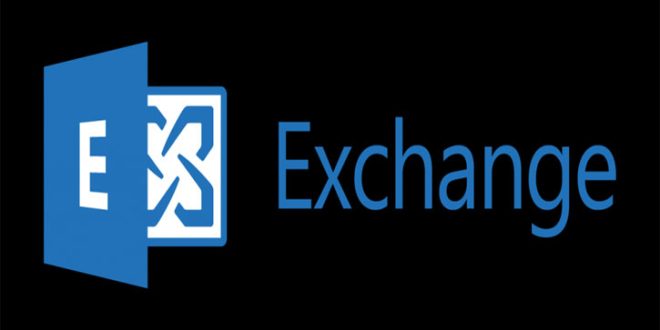Trend Micro’s Zero Day Initiative (ZDI) Thursday (02.11.23)
published four zero days vulnerabilities of Microsoft Exchange which can exploit remotely to execute arbitrary code or disclose sensitive information on affected installations.
Bleeping Computer reported, these vulnerabilities were reported to Microsoft on September 7th and 8th, 2023. Microsoft acknowledges the reports but postpones the fixes for later.
ZDI disagreed with this response and decided to publish the flaws under its own tracking IDs to warn Exchange admins about the security risks.
By infosecbulletin
/ Monday , June 23 2025
A hacking group reportedly linked to Russian government has been discovered using a new phishing method that bypasses two-factor authentication...
Read More
By infosecbulletin
/ Wednesday , June 18 2025
Russian cybersecurity experts discovered the first local data theft attacks using a modified version of legitimate near field communication (NFC)...
Read More
By infosecbulletin
/ Tuesday , June 17 2025
Cybersecurity researcher Jeremiah Fowler discovered an unsecured database with 170,360 records belonging to a real estate company. It contained personal...
Read More
By infosecbulletin
/ Tuesday , June 17 2025
GreyNoise found attempts to exploit CVE-2023-28771, a vulnerability in Zyxel's IKE affecting UDP port 500. The attack centers around CVE-2023-28771,...
Read More
By infosecbulletin
/ Tuesday , June 17 2025
The U.S. Cybersecurity and Infrastructure Security Agency (CISA) has recently included two high-risk vulnerabilities in its Known Exploited Vulnerabilities (KEV)...
Read More
By infosecbulletin
/ Monday , June 16 2025
SafetyDetectives’ Cybersecurity Team discovered a public post on a clear web forum in which a threat actor claimed to have...
Read More
By infosecbulletin
/ Sunday , June 15 2025
WestJet, Canada's second-largest airline, is looking into a cyberattack that has affected some internal systems during its response to the...
Read More
By infosecbulletin
/ Saturday , June 14 2025
Resecurity found 7.4 million records of Paraguayan citizens' personal information leaked on the dark web today. Last week, cybercriminals attempted...
Read More
By infosecbulletin
/ Friday , June 13 2025
HashiCorp has revealed a critical vulnerability in its Nomad tool that may let attackers gain higher privileges by misusing the...
Read More
By infosecbulletin
/ Friday , June 13 2025
SoftBank has disclosed that personal information of more than 137,000 mobile subscribers—covering names, addresses, and phone numbers—might have been leaked...
Read More
Summarize of the vulnerabilities published by ZDI:
ZDI-23-1578 – A remote code execution (RCE) flaw in the ‘Chained Serialization Binder’ class, where user data isn’t adequately validated, allowing attackers to reserialize untrusted data. Successful exploitation enables an attacker to execute arbitrary code as ‘SYSTEM,’ the highest level of privileges on Windows.
ZDI-23-1579 – Located in the ‘Download Data From Uri’ method, this flaw is due to insufficient validation of a URI before resource access. Attackers can exploit it to access sensitive information from Exchange servers.
ZDI-23-1580 – This vulnerability, in the ‘Download Data From Office Market Place’ method, also stems from improper URI validation, potentially leading to unauthorized information disclosure.
ZDI-23-1581 – Present in the Create Attachment From Uri method, this flaw resembles the previous bugs with inadequate URI validation, again, risking sensitive data exposure.
Authentication is needed to exploit these vulnerabilities, which makes them less severe with a CVSS rating between 7.1 and 7.5. Requiring authentication is a factor that helps reduce their impact. This could be why Microsoft did not prioritize fixing the bugs.
ALSO READ:
Daily Cybersecurity update, November 03
It should be noted, though, that cybercriminals have many ways to obtain Exchange credentials, including brute-forcing weak passwords, performing phishing attacks, purchasing them, or acquiring them from info-stealer logs.
That said, the above zero-days shouldn’t be treated as unimportant, especially ZDI-23-1578 (RCE), which can result in complete system compromise.
ZDI suggests that the only salient mitigation strategy is to restrict interaction with Exchange apps. However, this can be unacceptably disruptive for many businesses and organizations using the product.
We also suggest implementing multifactor authentication to prevent cybercriminals from accessing Exchange instances even when account credentials have been compromised.
Bleeping Computer has contacted Microsoft to ask about ZDI’s disclosure and are still waiting for a response.
Source: ZDI, Bleeping computer
 InfoSecBulletin Cybersecurity for mankind
InfoSecBulletin Cybersecurity for mankind














